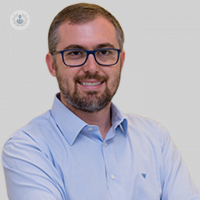Headaches in children: severe headache
Written by:From a very young age a child can feel a child's headache and even babies may suffer, but we have no way of knowing. Headache may occur at this age due to crying, irritability or similar symptoms. Be that as it may, that's not the age at which we have to look. It is from about 4 years on, when a child begins to acquire the consciousness enough to be able to refer pain in a region as concrete as the head when it comes from the inside and not from a blow, wound or burn. Even at this age, some refer to discomfort by pointing to the head or verbalizing pain.
Frequent headaches in children and their causes
Most headaches in children are mild and are related to catarrhal or febrile processes in which congestion or temperature rise trigger discomfort directly. In addition, they are transient, thus disappearing with the fall of the fever or the improvement of the catarrhal process.
Migraine headaches or tension headaches are also relatively common in children. Sometimes they are triggered by visual causes such as myopia, which must be studied and, if necessary, corrected. Other times, they are due to fatigue or stress and in a few cases the origin is purely migraine.
When Should Headaches Be Concerned in Children
Headaches are very frightening, but on rare occasions they are due to serious causes. To be alert, parents and the neurologist should assess some signs that may indicate gravity to a child's headache:
- Pain that does not give way to usual painkillers.
- Pain that is accompanied by significant and repetitive vomiting, especially in the morning.
- Pain that causes nocturnal awakenings and does not allow rest.
- Pain associated with stiff neck or altered level of consciousness
Recommendations for children with frequent headaches
Children who frequently complain of headaches require ophthalmological and neurological revision. It is important to rule out the existence of a visual impairment, which once corrected resolves the picture. Otherwise, it is important to consider the possibility of a migraine headache in children. Faced with this situation, depending on the characteristics of the pain, its frequency and its intensity, it is necessary to decide the attitude to be taken. There are cases that may need specific pharmacological treatment for migraines if it does not improve with the usual measures.



